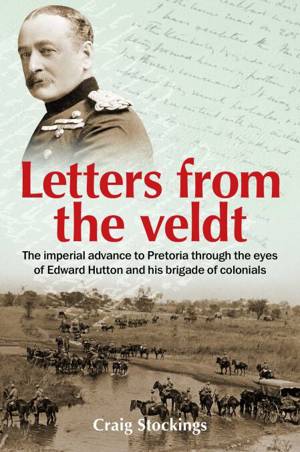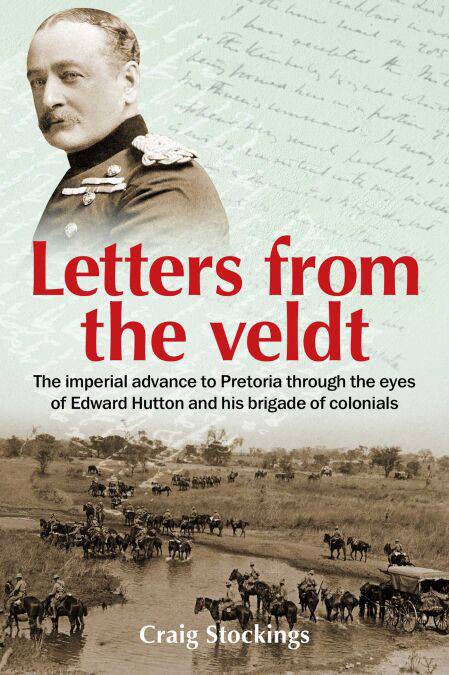
- Retrait gratuit dans votre magasin Club
- 7.000.000 titres dans notre catalogue
- Payer en toute sécurité
- Toujours un magasin près de chez vous
- Retrait gratuit dans votre magasin Club
- 7.000.000 titres dans notre catalogue
- Payer en toute sécurité
- Toujours un magasin près de chez vous
Letters from the Veldt EBOOK
The imperial advance to Pretoria through the eyes of Edward Hutton and his brigade of colonials.
Craig Stockings
Ebook | Anglais
7,71 €
+ 7 points
Description
The South African War – or Boer War – running from 11 October 1899 until 31 May 1902 –was the largest British military effort since the Napoleonic Wars. It was also the first time that large-scale, meaningful contributions were made to an active theatre of war by the self-governing colonies. This included formal contributions of around 20,000 troops from the Australian colonies which dwarfed all previous Australian military commitments.
Just as the war was a watershed event for the development and professionalisation of the British Army from 1902-14, it was momentous for the self-governing colonies in Australia and elsewhere in social, political and most certainly in military terms.
Letters from the Veldt sheds light on the activities of imperial military contingents – in which Australians served – during the Imperial march to Pretoria from May-September 1900, the successful conclusion of which marked the end of ‘conventional’ operations in South Africa and the beginning of the ‘guerrilla’ phase that would drag on until May 1902. A large proportion of colonial troops serving in South Africa at this point did so as part of the 1st Mounted Infantry Brigade.
Despite their importance, the experiences of this brigade have not figured largely in existing any accounts of the Boer War. The brigade itself was composed of not only Australians, but Canadians, New Zealanders, and British regular and volunteer troops, and a scattering of ‘loyal’ South Africans. It was in many ways a microcosm of imperial military cooperation; an important part of the steady development of attitudes, expectations and shared experience which led to the formation in 1914 of a much larger expeditionary force.
This account does not follow a standard pattern or format – there is no measured, steady traditional narrative. Rather, the experiences of the 1st Mounted Infantry Brigade, and the light they shed on many wider issues, are presented through letters written home by its British commander, Major General Edward Thomas Henry ‘Curly’ Hutton – himself a little-known yet key figure in the early history of the Australian military.
Read within their context, the Boer War letters of Major General Edward Hutton offer a window not only into the course and conduct of the imperial advance to Pretoria, but also a lens through which to better understand a range of wider issues that framed his world – the world of Australian military history before the term Anzac was coined.
Just as the war was a watershed event for the development and professionalisation of the British Army from 1902-14, it was momentous for the self-governing colonies in Australia and elsewhere in social, political and most certainly in military terms.
Letters from the Veldt sheds light on the activities of imperial military contingents – in which Australians served – during the Imperial march to Pretoria from May-September 1900, the successful conclusion of which marked the end of ‘conventional’ operations in South Africa and the beginning of the ‘guerrilla’ phase that would drag on until May 1902. A large proportion of colonial troops serving in South Africa at this point did so as part of the 1st Mounted Infantry Brigade.
Despite their importance, the experiences of this brigade have not figured largely in existing any accounts of the Boer War. The brigade itself was composed of not only Australians, but Canadians, New Zealanders, and British regular and volunteer troops, and a scattering of ‘loyal’ South Africans. It was in many ways a microcosm of imperial military cooperation; an important part of the steady development of attitudes, expectations and shared experience which led to the formation in 1914 of a much larger expeditionary force.
This account does not follow a standard pattern or format – there is no measured, steady traditional narrative. Rather, the experiences of the 1st Mounted Infantry Brigade, and the light they shed on many wider issues, are presented through letters written home by its British commander, Major General Edward Thomas Henry ‘Curly’ Hutton – himself a little-known yet key figure in the early history of the Australian military.
Read within their context, the Boer War letters of Major General Edward Hutton offer a window not only into the course and conduct of the imperial advance to Pretoria, but also a lens through which to better understand a range of wider issues that framed his world – the world of Australian military history before the term Anzac was coined.
Spécifications
Parties prenantes
- Auteur(s) :
- Editeur:
Contenu
- Nombre de pages :
- 286
- Langue:
- Anglais
Caractéristiques
- EAN:
- 9781922387066
- Date de parution :
- 07-07-20
- Format:
- Ebook
- Protection digitale:
- Adobe DRM
- Format numérique:
- ePub







